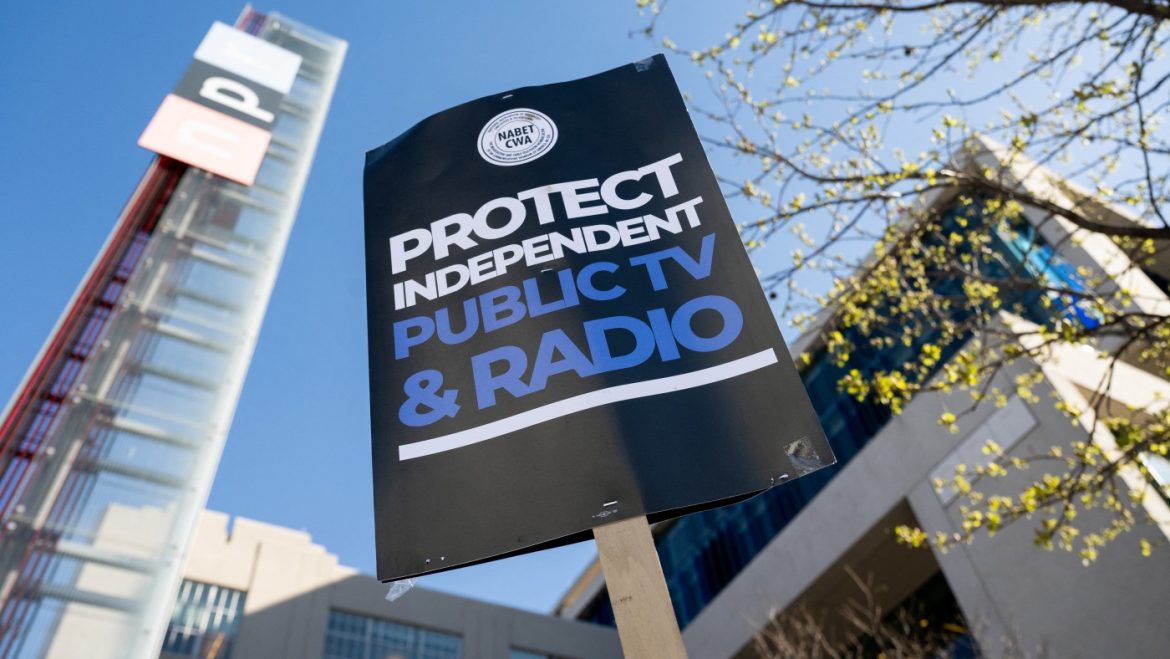An Escalating Battle Over Public Media Funding: Trump’s Defund Push Meets Democratic Resistance
The latest political showdown centers on President Donald Trump’s aggressive campaign to reduce—and effectively eliminate—federal funding for public media in the United States, chiefly NPR (National Public Radio) and PBS (Public Broadcasting Service). This funding battle intertwines with broader spending cut demands that include slashing billions from foreign aid. It has triggered fierce opposition among Senate Democrats, public media executives, and supporters who warn of disastrous consequences for local stations and vital public services nationwide.
The Trump Administration’s Funding Cut Proposal: Scope and Intent
President Trump’s administration formally requested Congress to claw back approximately $1.1 billion that had previously been appropriated for the Corporation for Public Broadcasting (CPB), which distributes federal subsidies to NPR, PBS, and more than 1,500 local public media outlets. This rescission aligns with a broader request targeting roughly $9 billion in spending reductions, notably reductions in foreign aid funding, including programs combating HIV/AIDS and global health contributions.
Beyond the direct budget cut proposal, Trump signed a sharply critical executive order labeling NPR and PBS as “radical left monsters,” and insisted Republicans “must defund and totally disassociate” from these public broadcasters. His administration argues that these entities push politicized or biased content, framing the move as a necessary step against ideological partisanship in public media.
GOP Congressional Actions: Votes and Legislative Momentum
Aligned with the administration’s objectives, House GOP leaders have scheduled votes to approve the clawback of the $1.1 billion in public media funding. This move is part of a wider legislative momentum among Republicans to diminish government support for NPR and PBS, with bills like the “No Propaganda Act” and the “Defund NPR Act” already introduced. These efforts have gained traction amid claims from GOP members that public media is skewed with a partisan agenda, though skeptics remain about the likelihood of full defunding due to the complexity of funding mechanisms and bipartisan support for local public media stations.
Democratic Opposition and Public Media Advocacy
Senate Democrats have mounted a strong counter-offensive, warning that the elimination of public broadcasting funding would force many stations to shut down, endangering essential informational services, especially in rural and underserved communities. They emphasize public media’s role in providing unbiased news, educational content, and cultural programming that commercial media outlets often neglect.
Public media executives and advocates have made visible efforts by organizing rallies on Capitol Hill to convince lawmakers to reject the proposed cuts. They contend that NPR and PBS are critical pillars for democratic discourse and civic education, helping to ensure Americans receive trustworthy information amid a fractured media landscape. Concerns also highlight the potential loss of support for local programming that addresses community needs, risking gaps in journalism and educational outreach.
Legal Challenges and Broader Political Implications
In response to the executive order and ensuing funding threats, NPR and several public radio stations have initiated lawsuits against the Trump administration, arguing that the funding ban is “blatantly unlawful.” They assert that the executive order violates established appropriations laws and undermines their independence.
The defund campaign has drawn intense debate about the role of federal government in supporting public information infrastructure and the politicalization of media funding. Critics argue this move reflects a broader trend of undermining independent media to suppress critical voices and control national narratives. Meanwhile, defenders of defunding frame it as a correction of perceived liberal bias within publicly supported outlets.
The Pragmatic Challenge: Funding Structure and Congressional Response
One complication in the GOP’s defunding campaign is that the CPB’s appropriations occur biennially, meaning funding is secured two years ahead. This structure complicates immediate cutbacks and requires careful legislative maneuvering. Moreover, many local stations receive substantial funding from diverse sources including viewer donations, underwriting, and state-level support, which may buffer some impacts of federal cuts but cannot fully compensate for wholesale federal defunding.
Congress now faces a narrow window—typically 45 days—to consider the administration’s rescission request and either approve or reject it. This procedural deadline creates a high-stakes countdown focused on both political posturing and substantive debate about public media’s future and priorities in national spending.
Conclusion: A Defining Moment for Public Media’s Future
This conflict over NPR and PBS funding is emblematic of the seismic political divisions shaping America’s media environment. The Trump administration’s aggressive push to slash federal support marks a pivotal test for how public media is valued and sustained in a deeply polarized era. As Democrats rally to defend these institutions’ role in fostering democratic values and comprehensive public information, Republicans advance critiques of bias and government overreach, propelled by broader fiscal austerity goals.
The imminent congressional decisions will determine not just the financial health of NPR, PBS, and hundreds of affiliate stations, but will also reverberate through public discourse, access to educational content, and the resilience of media diversity in the United States. This standoff therefore stands as a critical moment that could redefine public broadcasting’s place in American society for years to come.


